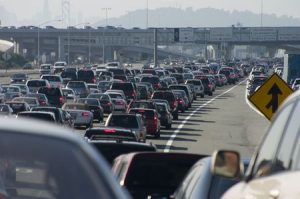
Coming this fall to a ballot box in Stanislaus County is a rehash of two previously failed sales tax proposals. As in 2006 and 2008, the current proposal would increase the sales tax by a full half percent.
The proposal includes allocations for projects that will supposedly benefit everyone: road repairs, increased road capacity, and improved public transportation are all promised.
Each time the half percent sales tax has gone to the ballot, it has come closer to passage; campaigners use more sophisticated marketing techniques each try. In 2008, the measure came so close to passage that proponents demanded a recount.
The current proposal is no more worthy than the previous measures.
The Revenue Split
In an attempt to appeal to all the voters, revenue from the sales tax increase will be split among the various political jurisdictions throughout Stanislaus County and used for pet projects. The projects will be selected by elected leaders through a committee they appoint, until the money runs out.
For the average taxpayer, the split is not a good deal. Nearly half of the revenue will be used to increase road capacity. Without urban growth in Stanislaus County, no need to increase capacity would exist.
Every dime of the sales tax increase that funds increased road capacity represents a subsidy to urban developers. Instead of increasing infrastructure fees to make developers pay their fair share, every citizen will be asked to subsidize developers via the tax increase.
Borrowing Money to Fund Projects
The unspoken part of the plan will be the goal of front-loading roadway projects for rapid short term development. Like Stanislaus County did with the Tobacco settlement, administrators will borrow money against 20 years of anticipated revenues, build as many projects as possible during the first five years of the tax increase, and use tax revenue during the remaining 15 years to pay off loans taken out to fund the early projects.
Borrowing money to fund road projects is bad public policy because not every dollar of tax revenue will yield a benefit to the taxpayers. Most road projects are funded “pay as you go;” if there is not enough cash, the project does not get built. Besides the developers, the lenders will benefit the most from Measure L.
Taxpayers will see a flurry of construction for five years and then nothing for 15 years. This will enable developers to build their subsidized projects before the next recession and leave taxpayers repaying the debt.
The Oversight Committee
As with the 2008 proposal, Measure L will have an oversight committee to make sure that sales tax income is properly spent. Shouldn’t that be the role of the elected leaders? Implicit in the existence of the committee is the thought that elected leaders cannot be trusted to properly spend the money.
If the elected leaders cannot be trusted, how can the taxpayer trust the committee members that those same untrustworthy leaders will appoint?
The committee clause in the measure is a hollow sales tool that will be used to promote a morally bankrupt proposal. This measure is not good government; it represents pork-barrel politics at its worst.
Overlooking Traditional Funding Sources
Historically, roads have been paid for using gasoline taxes, developer infrastructure fees, and automobile registration fees. Why is sales tax revenue needed to build roads? The sales tax is the most regressive form of taxation, harming lower income people least able to afford the tax.
Counting on Voter Gullibility
“You can fool all of the people some of the time; and you can fool some of the people all of the time; but, you can’t fool all of the people all of the time.” In the case of Measure L, only two thirds of the voters have to be fooled one time. Once voters are tricked, taxpayers will be stuck with the half cent sales tax for at least 20 years.
At the end of 20 years, with the expiration of the Measure L half percent tax, voters will have forgotten about being ripped off. When the proposal comes forward to renew the Measure, voters may make the same mistake.
As an example, the one-eighth cent library tax has been renewed multiple times; politicians have not ended that tax because they know taxpayers will pay for libraries. Even if a budget surplus exists, the libraries will never be fully funded so that the tax can expire.
Politicians want as much tax revenue as they can get. Without money, special interests cannot be favored. If Measure L fails, next election will be another opportunity to ask taxpayers for money.
